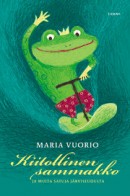Reviews
Anu Lahtinen: Pohjolan prinsessat. Viikinkineidoista renessanssiruhtinattariin [Princesses of Pohjola. From Viking maidens to Renaissance princesses]
22 February 2010 | Mini reviews, Reviews
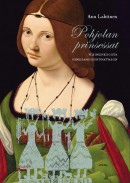 Pohjolan prinsessat. Viikinkineidoista renessanssiruhtinattariin
Pohjolan prinsessat. Viikinkineidoista renessanssiruhtinattariin
[Princesses of Pohjola. From Viking maidens to Renaissance princesses]
Jyväskylä: Atena, 2009. 223 p., ill.
ISBN 978-951-796-595-8
€ 33, hardback
This book, a side project to Anu Lahtinen’s doctoral dissertation, tells of the women of the Nordic royal families from the 7th to the 17th centuries. The term ‘princesses’ is used here to refer to female members of ruling families who did not hold positions of power themselves. With its brief biographies of people who have long remained hidden in the historical shadow of great men, this book sheds light on a little-researched subject. Many princesses of the medieval Swedish, Danish and Norwegian realms grew up into significant political figures; they needed cunning, a good command of languages and even fighting skills in order to survive the tumults of that age. The rollicking parties and romantic escapades of Cecilia, one of the five daughters of King Gustav Vasa of Sweden, are reminiscent of the ‘party princesses’ of our own time. A Viking-era princess, Alfhild, became a pirate captain; according to medieval tales, she disguised herself as a man and managed to lead a crew of female pirates in a number of raids along the shores of the Baltic.
Kielissä kulttuurien ääni [Language: the voice of cultures]
22 February 2010 | Mini reviews, Reviews
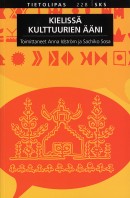 Kielissä kulttuurien ääni
Kielissä kulttuurien ääni
[Language: the voice of cultures]
Toim. [Ed. by] Anna Idström and Sachiko Sosa
Helsinki: Suomalaisen Kirjallisuuden Seura, 2009. 311 p.
ISBN 978-952-222-129-2
€ 28, paperback
It is estimated that at least half of the world’s languages are dying out. This book aims to provide readers with information on the relationship between languages and cultures. What sorts of human cultural traditions are disappearing as a result of language extinction? In this book, linguistic researchers describe aspects of the interplay between language and culture and how different languages shed light on the cultures of their speakers. The 15 chapters include studies of the special features of Khanty texts, the Mansi language of Russia, Bantu languages, Creoles and Japanese as well as of language taboos within Finnish Roma culture. The subject is also addressed via translation studies; translating the Bible into hundreds of languages has proved that every language is unique – no language is completely substitutable for another in all its finest nuances.
Maria Turtschaninoff: Arra. Legender från Lavora [Arra. Legends from Lavora]
12 February 2010 | Mini reviews, Reviews
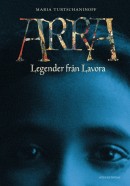 Arra. Legender från Lavora
Arra. Legender från Lavora
[Arra. Legends from Lavora]
Helsinki: Söderströms, 2009. 251 p.
ISBN 978-951-52-2604-4
19.90 €, hardback
Legender från Lavora by Maria Turtschaninoff (born 1977) is limpid and leisurely in tone, yet the story of Arra, a girl from a poor family, is intense, tragic and original. Because she is mute, Arra is thought to be feeble-minded, and thus of no value to her family. She becomes, in fact, an ‘invisible child’ – the author’s reference to neglected children of the present day. The girl uses a special power to compensate for the contempt of those around her: she binds herself in living connection with nature, which leads her in the end to glory and honour. Because of Arra’s long period of muteness as she enters her teens, dialogue is a very small portion of the book. The narrative may be challenging for young readers, but the vivid love story of Arra and Prince Surando has an irresistible, magical enchantment.
Tomi Kontio: Viidakon kutsu [The call of the jungle]
12 February 2010 | Mini reviews, Reviews
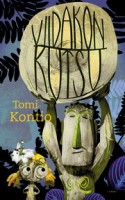 Viidakon kutsu
Viidakon kutsu
[The call of the jungle]
Helsinki: Tammi, 2009, 240 p.
ISBN 978-951-31-5042-6
16.20 €, hardback
Poet and author Tomi Kontio’s book for young teenagers is a take-off of the boys’ adventure story and fantasy novel, a genre he has used in the past. But Kontio leads 12-year-old Alma and Alpo into the jungle… of eastern Finland – the backwoods of Kainuu, to be precise. There they meet the Vimbas, a tribe living in harmony with nature, who teach them many important lessons. Kontio succeeds in combining his two narrative talents: he doesn’t underestimate the value of lively and lyrical language to his target audience, and he entertains his readers with fabulations that mix the rational and the absurd into a cohesive whole. Viidakon kutsu is a portrait of a world that is considerably brighter than in Kontio’s previous books for young readers.
Jukka Laajarinne: Ruoalla ei saa leikkiä [Don’t play with your food]
5 February 2010 | Mini reviews, Reviews
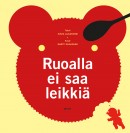 Ruoalla ei saa leikkiä
Ruoalla ei saa leikkiä
[Don’t play with your food]
Kuvitus [Ill. by]: Martti Ruokonen
Helsinki: WSOY, 2009. 60 p.
ISBN 978-951-0-35040-9
18.20 €, hardback
Jukka Laajarinne (born 1970) exercises his obsession with challenging authority again, stretching the boundaries of traditional children’s literature. It seems that becoming a father has made him wonder at the dominant role of food in everyday life: this book deals broadly with food, eating, and food culture. The impetus for the stories might be an ordinary figure of speech or adage that is taken apart and played with. For instance, King Midas, familiar from Greek mythology, who turned everything to gold with his touch, is transformed in Laajarinne’s retelling into a sticky-fingered kid who makes a mess of everything around him. Martti Ruokonen’s graphic illustrations are stark and even coarse in places, their colour choices and rounded forms reminiscent of visual images made for the first books for babies.
Maria Vuorio: Kiitollinen sammakko [The grateful frog]
5 February 2010 | Mini reviews, Reviews
Kiitollinen sammakko ja muita satuja järviseudulta
[The grateful frog and other stories from the lake country]
Kuvitus [Ill. by]: Virpi Penna
Helsinki: Tammi, 2009. 111 p.
ISBN 978-951-31-5017-4
18.20 €, hardback
There is no need to categorise Maria Vuorio’s original yet tradition-conscious prose and poetry as being for readers of a particular age. A father and son, Aatos and Justus, are spending their vacation at a summer cabin. Justus rescues a frog from a well, setting in motion a chain of events that leads the boy to see the world through different eyes. The frog happens to be the king of the frogs, and wishes to reward Justus for his good deed. The stories are wonderful explorations of humble, reticent animals – a perch, a dragonfly, a spider, a crab, a mole. A bumblebee’s leg in a cast has probably never been described with such devotion before. Today, Finnish children’s relationship with nature is limited to the surroundings of the summer cabin. But Vuorio’s view of the relationship of child with nature is still a romantic one. Dazzled by the moonlight, Justus wonders to himself, ‘Why is there such beauty, if no one ever sees it?’
Seita Parkkola: Usva [Mist]
29 January 2010 | Mini reviews, Reviews
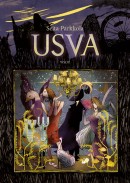 Usva
Usva
[Mist]
Kuvitus: [Ill. by] Jani Ikonen
Helsinki: WSOY, 2009. 375 p.
ISBN 978-951-0-35352-3
19.70 €, hardback
Usva, the 13-year-old protagonist of Seita Parkkola’s novel of the same name, is unusually tall. From her height, she can see farther and more clearly than other people. Usva is a coming of age story in a minor key, its melancholy underlined by Jani Ikonen’s dark black and white illustrations. The images ooze with romantic dereliction, run-down buildings, storm-driven tree limbs, fish on dry land gasping for air. The illustrations are a good example of the visual world brought to life by the success of Japanese manga. Parkkola aptly describes the painful aspects of puberty from the point of view of both the child and the parent. She adds an air of mystification to the age of 13, which she sees as a turning point between childhood and adulthood. The novel can be read as a vision of the near future, of the disintegration of societal support, the increasing fragility of parenthood. Childhood’s end arrives at an ever younger age, and adulthood is entered with a leap, eyes open, without parental support to guide a child into her own adulthood.
Mari Kujanpää: Minä ja Muro [Muro and me]
28 January 2010 | Mini reviews, Reviews
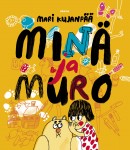 Minä ja Muro
Minä ja Muro
[Muro and me]
Kuvitus [Ill. by]: Aino-Maija Metsola
Helsinki: Otava, 2009. 207 p.
ISBN 978-951-1-23418-0
15.10 €, hardback
The heavy themes of this children’s novel, winner of the 2009 Finlandia Junior Prize, have provoked discussion of who its target audience should be. Lauha is a 9-year-old girl who is considered an oddball at school; her classmates claim that she smells bad. Within her own family she’s an outsider. Her little brother’s serious illness has troubled the family for a long time, and even when he gets better her parents don’t know how to listen to Lauha, and their negligence verges on physical violence. But playing with Muro, her teddy bear, eases Lauha’s troubles, and luckily she finds a soul sister in Heta, the new school intern. Mari Kujanpää (born 1976) uses language suitable for a child’s state of mind in a very creative way. Muro ja minä is difficult for a child to read on his/her own, and would work best read aloud and discussed in a group of children or as a book for adult caregivers. The black and white illustrations are by Aino-Maija Metsola (born 1983), whose previous work includes designing fabrics for Marimekko.
Antti Hyry: Uuni [The stove]
22 January 2010 | Mini reviews, Reviews
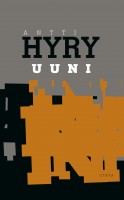 Uuni
Uuni
[The stove]
Helsinki: Otava, 2009. 400 p.
ISBN 978-951-1-23845-4
28 €, hardback
Many authors have inspired imitators, at least for a brief period, but few prove to be so original that they lend their name to an entire stylistic movement. Antti Hyry (born 1931), whose debut work was published in 1958, is a member of this most influential class of writers. His pared-down ‘Hyryesque’ sentences, which convey in a stark, crystal-clear manner only that which his characters think or observe, have been at the core of Finnish modernism for over half a century now. His latest novel, a tranquil, even meditative work, describes in minute detail – virtually brick by brick – how a man constructs a great wood-burning hearth in his house. Alongside the building work, Hyry provides minutely observed details of the natural surroundings and nearby people. Rich in content and brilliant in its simplicity, this novel was awarded the 2009 Finlandia Prize for fiction.
John Simon: Koneen ruhtinas. Pekka Herlinin elämä [The Prince of Kone. The life of Pekka Herlin]
15 January 2010 | Mini reviews, Reviews
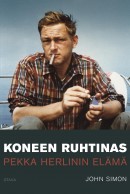 Koneen ruhtinas. Pekka Herlinin elämä
Koneen ruhtinas. Pekka Herlinin elämä
[The Prince of Kone. The life of Pekka Herlin]
Finnish translation of original English manuscript completed by various translators in collaboration with the author
Helsinki: Otava, 2009. 415 p., ill.
ISBN 978-951-1-23478-4
€ 33, hardback
Pekka Herlin (1932–2003) was the long-serving chairman of the board of the Kone lift and escalator company. During Herlin’s tenure, Kone completed a number of corporate acquisitions to become a major global corporation. John Simon, an American writer and researcher, takes an unusually honest and direct approach; the project was undertaken at the request of Antti Herlin, the current chairman of the board at Kone and son of Pekka Herlin. Pekka Herlin was known for being both gregarious and a cool-headed business strategist, but his irascible, unorthodox nature was familiar to many as well. Within his family he emerged as a tyrannical alcoholic with a severely disturbed personality, feared by his children. John Simon interviewed a great many people who knew Pekka Herlin personally, including members of Herlin’s immediate family. This biography was Finland’s best-selling non-fiction book in the autumn of 2009.
Johanna Holmström: Camera Obscura
6 January 2010 | Mini reviews, Reviews
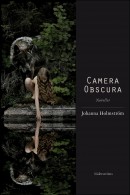 Camera Obscura
Camera Obscura
Helsinki: Söderströms, 2009, 334 p.
ISBN 978-951-52-2616-7
€ 24,90, hardback
This short story collection is Johanna Holmström’s fourth book since her debut in 2003. Camera Obscura is a fabric of narratives and personal destinies which create a dense, novel-like whole. The preamble is a young environmental activist’s suicide. The form is interwoven with the content, so that the stories in the book can be read as separate narratives, but to understand them fully we must read them all. Each person’s destiny is shaped in part by the choices and actions of others; to what extent is the individual responsible for the whole? Holmström (born 1981) writes fiction that is unpredictable but stylistically assured. She seamlessly weaves with classic fairytale motifs and also has a keen eye for detail and psychology. Camera Obscura is at once eerie, suspense-filled and socially aware.
Glenda Goss Dawn: Vieläkö lähetämme hänelle sikareja? [Do we still send him cigars?]
30 December 2009 | Mini reviews, Reviews
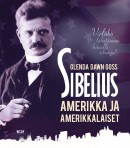 Vieläkö lähetämme hänelle sikareja? Sibelius, Amerikka ja amerikkalaiset. 24 tarinaa
Vieläkö lähetämme hänelle sikareja? Sibelius, Amerikka ja amerikkalaiset. 24 tarinaa
[Do we still send him cigars? Sibelius, America and Americans: 24 stories]
Translated into Finnish (from the manuscript) by Martti Haapakoski
Helsinki: WSOY, 2009. 268 p., ill.
ISBN 978-951-0-35517-6
€ 35, paperback
Finnish composer Jean Sibelius (1865–1957) was very highly regarded in the United States; the world’s first Sibelius appreciation society was set up in a small town in Pennsylvania, and at one time there was even a sort of Sibelius cult in Boston. In 1935 American radio listeners voted Sibelius their favourite living composer of symphonies. Walt Disney was an admirer of Sibelius’ music, though his plan to transfer The Swan of Tuonela to the big screen was never realised. Sibelius’ affinity for fine cigars was widely known, and sending boxes of cigars to the composer became a typical expression of admiration among Americans. Cigars were sent by regular citizens as well as prominent figures like Louis Armstrong. This book consists of 24 accounts describing interactions between Sibelius and Americans. It also details rises and falls in Sibelius’ popularity.Glenda Dawn Goss, is an American expert on Sibelius and possesses a doctorate in musicology. She has lectured at the Sibelius Academy in Helsinki since 2007.
Suomalaiset tutkimusmatkat [Finnish scientific expeditions]
23 December 2009 | Mini reviews, Reviews
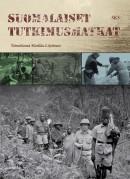 Suomalaiset tutkimusmatkat
Suomalaiset tutkimusmatkat
[Finnish scientific expeditions]
Toim. [Edited by] Markku Löytönen
Helsinki: Suomalaisen Kirjallisuuden Seura, 2009. 480 p., ill.
ISBN 978-951-746-774-2
€ 64, hardback
This book is a comprehensive survey of Finnish scientific expeditions from the 18th century up to the present day. It covers the sciences that traditionally involve field research: geology and palaeontology, botany and zoology, geography, oceanography, archaeology, linguistics, and anthropology. The book consists of 13 chapters written by experts in their respective fields. The best-known expeditions undertaken by Finns are A. E. Nordenskiöld’s voyage to the North-East Passage, J. G. Granö’s expedition to the Altai Mountains and Rafael Karsten’s travels with Amazonian headhunters. Other chapters tell of current fieldwork projects involving Finns, including research in the Amazon region and Antarctica, as well as the high Arctic. This book does not confine itself to Earth-bound scientific research; it even includes cosmology and space research – areas where scientific equipment developed by Finns have played important roles.

